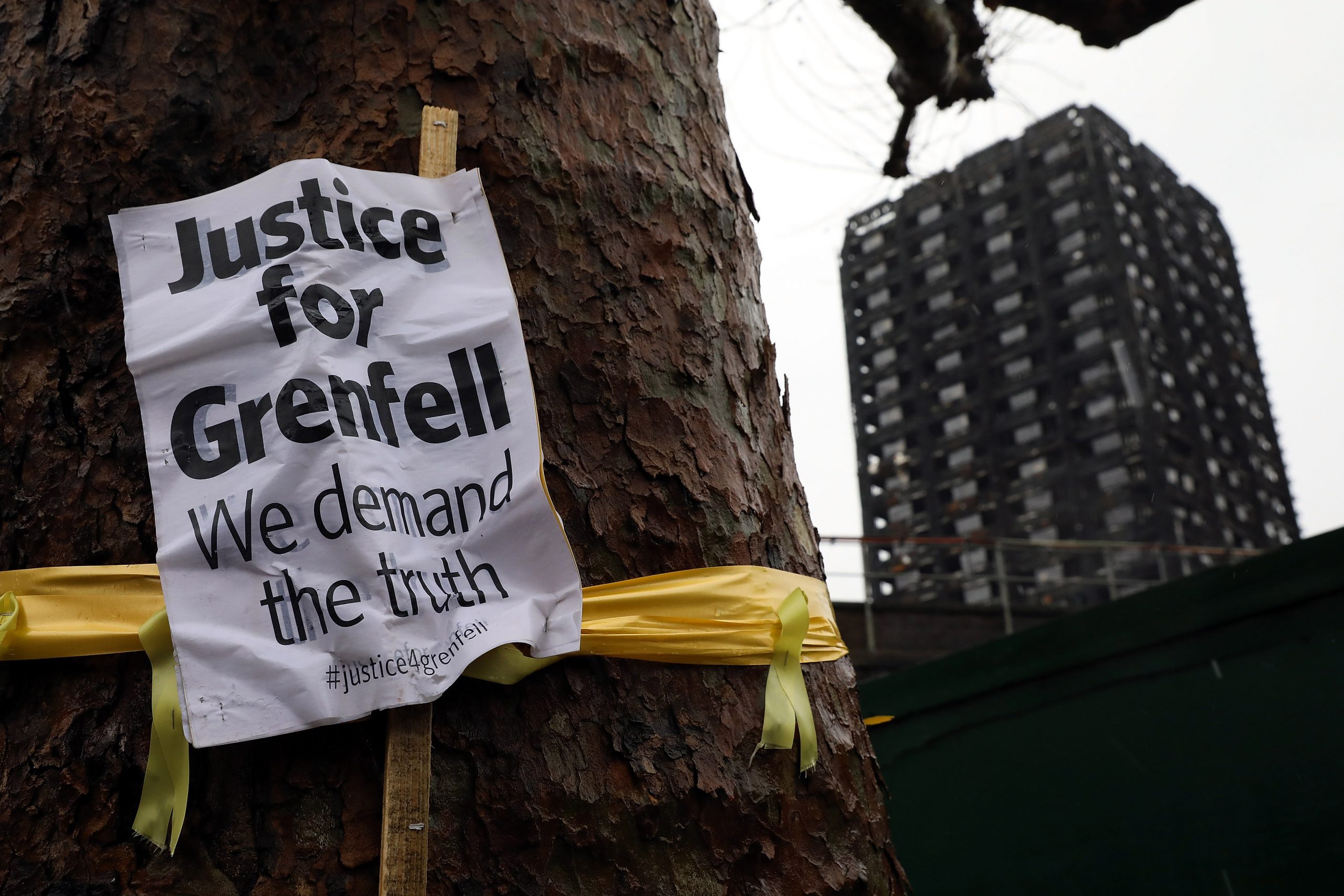
Reading the initial reports on the findings of the first phase of the inquiry into the Grenfell Tower fire brings to mind the Bob Dylan song ‘Who Killed Davey Moore?’
In it, Dylan recounts the death of the eponymous featherweight boxing champion in a fight in New York in 1963. He asks whether it was the referee, the spectators, the promoter, the gamblers or Moore’s opponent who were responsible. In fact, they are all guilty of something, to a greater or lesser extent – but none is willing to accept any blame.
When tragedy strikes, we want desperately to identify the villains. Partly because it bring closure, but also – because just like the fans who watched Dylan’s boxer die – it alleviates us of any sense of responsibility ourselves.
The search for villains also helps us to understand. It is easy to grasp the role of the London Fire Brigade (LFB) in the Grenfell Tower fire of 2017. Firefighters put out fires. They are the heroes who live among us. So when it turns out they might be at fault, it’s a narrative we can all comprehend. It is no surprise, therefore, that the fire service has been the focus of the coverage in the run up to the publication of phase one of Martin Moore-Bick’s report today.
This coverage, by the way, shouldn’t have happened at all: the report was only in the public domain early because the Daily Telegraph chose to break an embargo that was imposed specifically so that survivors and bereaved relatives could have an appropriate amount of time to digest its findings. At a time when the fourth estate has done little to cover itself in glory, this represents another low tide mark.
Of course, it would be wrong not to allow proper scrutiny of the London Fire Brigade’s “stay put” policy or acknowledge that the decision to keep it in place may have cost lives. Equally, it would be wrong not to highlight the inadequate training and lack of preparedness of the service to handle a fire on the unprecedented scale of Grenfell. As for LFB commissioner Dany Cotton’s assertion to the inquiry that she would have done nothing different on the night, to describe those comments as insensitive is a gross understatement.
But to treat the fire service or its commissioner as a release valve for the anger of a community that was rent asunder one hot June night two and a half years ago is to do that community a disservice.
Sir Martin Moore-Bick laid out the scope of his inquiry early on, deciding that the first phase should concentrate on the events of the night itself, with the underlying causes only being examined in the second phase, which will start next year. Such neat separation might be administratively convenient but it does not reflect reality.
What caused the fire to happen in the first place, for it to spread so quickly, and for so many people to die? Was it a faulty electrical appliance? Was it a poorly funded fire service? Was it the flammable cladding that surrounded the building?
Or was it years of deregulation? Was it a complacent local and national political class? Was it the systematic dehumanisation of social housing tenants?
The answer is that it was all of these things and more. Grenfell happened because of decisions made by individuals and because of a certain political culture.
Yet it is easier to point the finger at a highly visible group of people and their actions on a single night than to understand – to take just one example – how and why the government chose to ignore recommendations about the use of combustible materials from a previous deadly fire at Lakanal House in south London, eight years earlier.
As Inside Housing revealed, ministers were called on to act on these recommendations no fewer than 21 times in the three years prior to Grenfell. That nothing was done says much about the priorities of those in power at the time.
Today, the victims of Grenfell are still angry. Some of that anger is directed at the fire service – although not, it should be stressed, at individual firefighters put in an almost impossible situation. But most campaigners have focused less on the LFB than on an economic and political system that they see as weighted against them.
They are angry at a government in thrall to the cult of cutting red tape; at a local council widely seen as lacking compassion; at a landlord that ignored their warnings; at companies that profited by taking advantage of slack building regulations.
Perhaps the next phase of the inquiry shines a light into every dark corner of this complacent culture. Unfortunately, none of that makes for as simple or compelling a headline as a fire service that failed to put out a fire.
Gavriel Hollander is a freelance journalist, who has worked for Inside Housing and Construction News. Follow him @gavhollander.





